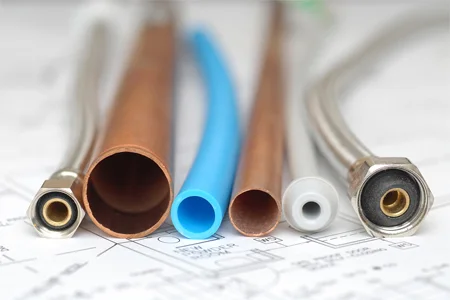Dec . 26, 2024 02:14 Back to list
DN150 HDPE Irrigation Pipe for Efficient Water Management and Distribution Solutions
The Benefits and Applications of DN150 HDPE Pipes for Irrigation
Irrigation is a crucial aspect of agriculture, ensuring that crops receive adequate water for growth and development. In recent years, advancements in materials have led to the increased use of high-density polyethylene (HDPE) pipes for irrigation systems. One of the most utilized sizes is the DN150 or 6-inch HDPE pipe, which offers numerous advantages for farmers and agricultural businesses alike.
What is HDPE?
High-density polyethylene (HDPE) is a thermoplastic polymer made from petroleum. It is known for its high strength-to-density ratio, making it suitable for a wide range of applications, including irrigation. HDPE pipes are lightweight, flexible, and resistant to corrosion and UV radiation, making them ideal for agricultural settings. The DN150 size refers to the nominal diameter of the pipe, which is approximately 150 mm or 6 inches, facilitating substantial water flow essential for irrigating large areas.
Advantages of DN150 HDPE Pipes
1. Durability HDPE pipes are remarkably durable and can withstand harsh environmental conditions. They are resistant to chemical corrosion, UV degradation, and abrasion, allowing them to last for decades without significant maintenance. This durability translates to reduced operational costs over time.
2. Flexibility One of the standout features of HDPE pipes is their flexibility. They can be easily bent and shaped to fit various landscaping requirements without the need for additional fittings. This adaptability is particularly useful in agricultural fields where terrain can be uneven or irregular.
3. Lightweight and Easy Handling Unlike traditional materials like PVC or metal, HDPE is lightweight, which facilitates easy transportation and installation. This quality helps reduce labor costs and time during the setup of irrigation systems.
4. Cost-Effective While the initial investment in HDPE pipes may be slightly higher compared to other materials, the long-term savings are significant. The combination of longevity, reduced maintenance, and lower energy costs associated with the lightweight nature of the pipes makes them a cost-effective option for large-scale irrigation.
5. Efficient Water Flow The smooth interior surface of HDPE pipes minimizes friction loss, allowing for a more efficient flow of water. This is crucial for maintaining optimal water pressure necessary for irrigation. Consequently, farmers can transport water over longer distances without compromising volume.
dn150 hdpe pipe for irrigation product

6. Environmental Impact HDPE is recyclable and produced from sustainable resources. Using HDPE pipes contributes to eco-friendly farming practices, as they do not leach harmful chemicals into the soil or water supply. This aspect aligns with the growing trend of sustainable agriculture.
Applications in Irrigation
DN150 HDPE pipes are versatile and have several applications in irrigation systems. They are frequently used in
- Mainline Irrigation Systems Serving as the primary pathway for water distribution, these pipes ensure quick water delivery to various parts of the farm.
- Drip Irrigation In certain setups, DN150 pipes can be utilized to supply water to drip lines, allowing precise watering directly to the plant roots and minimizing water wastage.
- Sprinkler Systems These pipes can effectively connect sprinkler heads, ensuring even distribution of water across the fields.
- Subsurface Irrigation The flexibility of HDPE allows for the installation of subsurface irrigation systems, which can be beneficial in arid regions by reducing evaporation loss.
Conclusion
In conclusion, the adoption of DN150 HDPE pipes in irrigation systems provides numerous benefits, including durability, flexibility, and cost-effectiveness. As agriculture continues to evolve with a focus on efficiency and sustainability, these pipes have become indispensable tools in modern irrigation practices, positively impacting crop yield and facility management. By using advanced materials like HDPE, farmers can ensure a steady supply of water, boost productivity, and contribute to more sustainable agricultural practices.
-
High-Quality PVC Borehole Pipes Durable & Versatile Pipe Solutions
NewsJul.08,2025
-
High-Quality PVC Perforated Pipes for Efficient Drainage Leading Manufacturers & Factories
NewsJul.08,2025
-
High-Quality PVC Borehole Pipes Durable Pipe Solutions by Leading Manufacturer
NewsJul.08,2025
-
High-Quality PVC Borehole Pipes Reliable PVC Pipe Manufacturer Solutions
NewsJul.07,2025
-
High-Quality UPVC Drain Pipes Durable HDPE & Drain Pipe Solutions
NewsJul.07,2025
-
High-Quality Conduit Pipes & HDPE Conduit Fittings Manufacturer Reliable Factory Supply
NewsJul.06,2025

